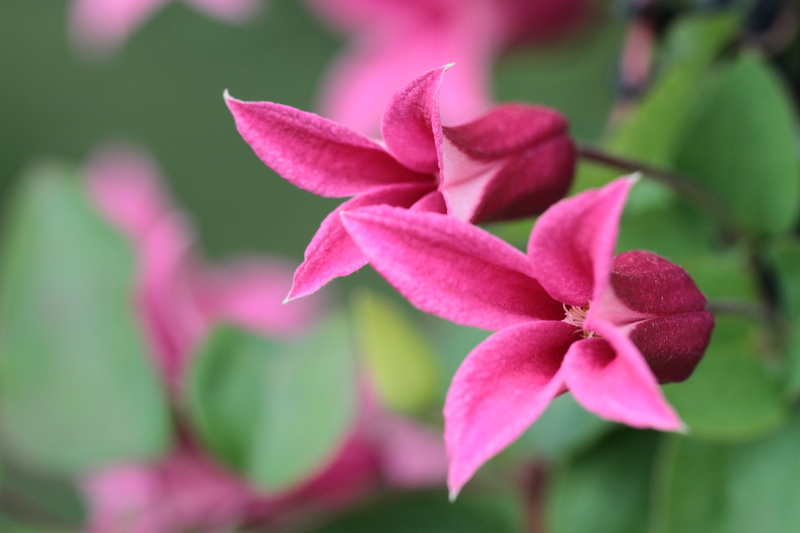Revamp Your Hedge Trimming Approach with Expert Shapes and Techniques
Posted on 22/09/2025
Revamp Your Hedge Trimming Approach with Expert Shapes and Techniques
Are you looking to breathe new life into your garden? Mastering the art of hedge trimming can dramatically enhance your outdoor space, ensuring your landscape remains vibrant, attractive, and healthy. In this comprehensive guide, we explore innovative hedge trimming approaches, expert techniques, and creative shapes that will transform your hedges into living masterpieces.

Why Revitalizing Your Hedge Trimming Matters
Well-maintained hedges do more than simply mark boundaries--they are the lush backbone of any garden. Advanced hedge shaping and modern trimming techniques can:
- Elevate curb appeal and create unique focal points.
- Promote hedge health by encouraging vigorous growth and preventing disease.
- Maximize privacy and shield against wind and noise.
- Showcase personal style and creativity in landscaping.
Basic Hedge Trimming vs. Advanced Techniques
Before diving into specialized hedge trimming strategies, it's useful to distinguish between traditional and advanced approaches.
- Traditional trimming focuses on simply cutting back growth to maintain a general shape and tidy appearance.
- Advanced hedge trimming methods consider plant health, artistic expression, and precision in form, offering your garden both beauty and structure.
Key Tools for Expert Hedge Shaping and Trimming
Before you begin, equip yourself with the right tools to ensure clean cuts and professional results:
- Hedge shears: Essential for shaping and reducing size.
- Electric or cordless trimmers: Great for quick, even cuts on longer hedges.
- Secateurs or pruning shears: Ideal for precision work and detailed shapes.
- String lines and stakes: Help guide straight edges and perfect symmetry.
- Ladders and platforms: For safely reaching tall or wide hedges.
- Protective equipment: Gloves, goggles, and long sleeves to prevent injury.
The Art of Hedge Trimming: Creative Shapes to Try

Classic Geometric Shapes
- Formal rectangles or squares--Perfect for a tidy, manicured look.
- Rounded domes--Add a soft, elegant touch to your landscape.
- Pyramids and cones--Great for smaller hedges, creating visual interest and height.
Pro tip: Use string lines and stakes to ensure evenness for geometric designs.
Topiary Art--Sculptural Hedge Trimming
Topiary involves pruning hedges into intricate shapes like animals, spirals, or whimsical objects. It requires patience and regular maintenance but uplifts your garden with a bespoke look.
- Boxwood and yew are ideal for topiary thanks to their dense growth and flexibility.
- Start with simple shapes before progressing to complex designs.
Naturalistic and Free-Form Styles
Prefer a softer, less structured appearance? Naturalistic hedge shaping enhances your landscape's flow and blends seamlessly with surrounding plants. This style focuses on gentle curves and mixed heights for a laid-back yet polished effect.
Essential Techniques for Revamped Hedge Trimming
Expert hedge pruning and trimming goes beyond surface shaping. Adopt these innovative techniques for superior results:
1. Tapering: Creating the Perfect Slope
Always trim your hedge so it's slightly wider at the base than at the top. This "batter" ensures sunlight reaches all leaves, preventing bare patches and encouraging uniform growth.
- Angle your cuts so the sides tilt inwards as they move upward.
- Check the angle regularly with a level or wooden template.
2. Progressive Thinning
Dense hedges can suffer from poor airflow and inner die-back. Progressive thinning involves selectively removing branches within the hedge to boost light penetration and air circulation. This technique keeps hedges healthy and resilient to pests and disease.
3. Step-Back Shaping
Frequently step back from your work to inspect the overall shape and balance. This perspective helps catch uneven areas or irregular growth before cuts become too deep.
Pro tip: Walk around the hedge after each major section for a 360-degree view.
4. Seasonal Pruning Strategies
Different species and climates dictate optimal trimming times:
- Formal evergreen hedges often need shaping in late spring and again in late summer.
- Flowering hedges (like lilac or forsythia) are best pruned after they bloom.
- Deciduous hedges can be cut in late summer or early winter when dormant.
Revamp Your Approach: Innovative Hedge Trimming Methods
Ready to elevate your hedge maintenance game? Discover these modern, impactful methods:
Laser-Guided Trimming
Some landscaping professionals use lasers or LED lines instead of strings and stakes for ultimate precision. These tools project a guide onto the hedge, ensuring flawless symmetry and razor-sharp edges.
Cordless Technology
Modern cordless hedge trimmers offer enhanced mobility, power, and control. Lighter than conventional models, they reduce fatigue, especially when shaping intricate designs.
Multilevel Hedge Designs
Layering hedges of different heights or planting varieties with distinct foliage invites drama and depth into your landscape. Intermix low, medium, and tall rows for a multi-dimensional effect.
Living Walls
Transform hedges into vertical gardens or living walls by training them along wire mesh or trellises. These structures maximize yard space--ideal for urban gardens with limited square footage.
Common Hedge Trimming Mistakes--and How to Avoid Them
Even seasoned gardeners stumble into pitfalls when pruning and shaping hedges. Sidestep these blunders:
- Cutting too late or early: Know your plants' growth cycles to avoid stunting or losing blooms.
- Ignoring sharpness of blades: Dull tools tear rather than cut, leaving ragged edges vulnerable to disease.
- Over-trimming: Excessive pruning reduces foliage, leading to bare patches and stress.
- Neglecting the base: Wider bases are critical for light access and stability; avoid "top-heavy" shapes.
- Forgetting cleanup: Debris can harbor pests and disease--always collect and compost trimmed branches.
Choosing the Right Hedges for Creative Trimming
Selecting suitable species is essential for successful shaping and advanced trimming:
- Boxwood (Buxus): Classic for formal shapes and topiary, handles frequent trimming well.
- Yew (Taxus): Dense and shade-tolerant, ideal for complex designs.
- Privet (Ligustrum): Fast-growing and easy to maintain, perfect for tight shapes.
- Lonicera nitida: Small leaves and fast growth--great for detailed topiary.
- Holly and Escallonia: Add texture, color, and tolerance to varied conditions.
Expert Tips for Flawless Hedge Maintenance
- Trim regularly to encourage dense growth and maintain defined shapes.
- Water deeply after major trims to reduce shock, especially in hot weather.
- Feed hedges with slow-release fertilizer in early spring for strong green growth.
- Inspect for pests and diseases during each trim--early discovery is key to managing outbreaks.
- Sharpen tools before each session for safety and precision.
Inspiration: Unique Hedge Trimming Ideas for Modern Gardens
- Maze designs--Carve pathways and simple labyrinths right into your hedgerows.
- Wave or cloud hedges--Flowing, undulating lines mimic natural landscapes.
- Entryway arches--Define gateways with curved hedges for a welcoming effect.
- Spirals or animal forms--Let your creativity run wild with living sculptures.
For a sophisticated yet low-maintenance look, intersperse flowering or colored-leaf varieties for seasonal color and contrast.

When to Call in the Pros
If you crave meticulous geometric designs or elaborate topiaries, consider hiring professional hedge trimmers. They bring:
- Expertise in plant species and advanced trimming techniques.
- Precision equipment for large or challenging projects.
- Efficiency when managing extensive or tall hedgerows.
Conclusion: Redefine Your Garden with Expert Hedge Trimming
Revamping your hedge trimming approach through innovative shapes, tools, and techniques doesn't only upgrade your garden's appearance--it boosts plant health and expresses your unique style. Experiment with formal geometric shapes, unleash your inner artist with topiary, or embrace naturalistic curves for a modern twist.
With regular maintenance and the right strategies, even amateur gardeners can achieve professional results that transform hedges into a point of pride.
Ready to revamp your hedge trimming approach? Start with one of the expert techniques above and watch your outdoor sanctuary blossom into a showpiece--all with your own creative touch!
Additional Resources
- Royal Horticultural Society: How to Prune Hedges
- Garden Design: Hedge Trimming Tips
- Penn State Extension: Hedges
Transform your hedges from simple barriers to striking centerpieces--your garden's new look awaits!
Latest Posts
Zen Garden Plans for Cultivating Outdoor Peace
Enhance Garden Ambiance with Perfectly Planned Seating
How to Design an Herb Garden for Maximum Growth
Revamp Your Hedge Trimming Approach with Expert Shapes and Techniques

